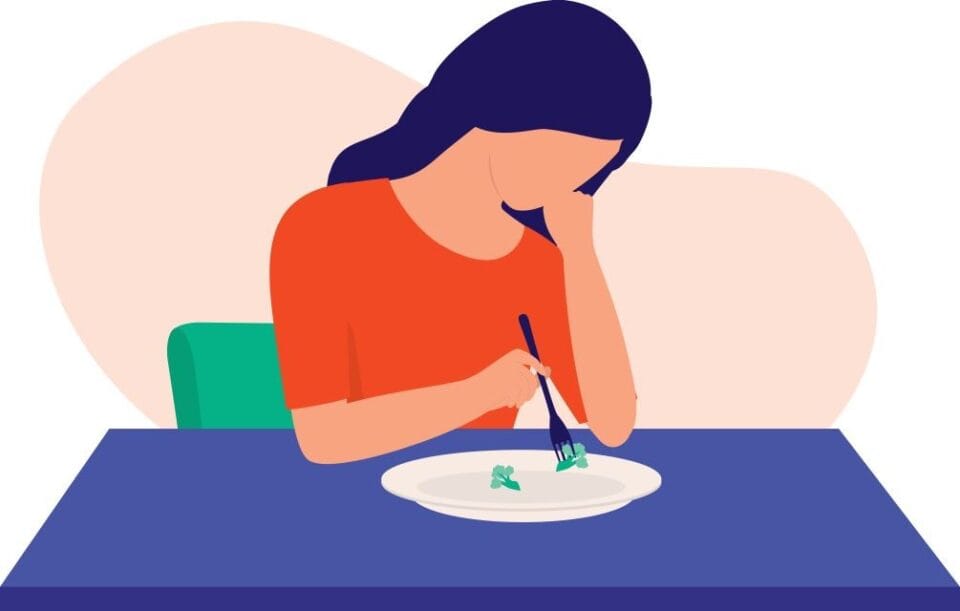Depression, anxiety, and low self-esteem are often linked to eating disorders. Changes in mood can be both a cause and an effect of these disorders.
Treatment of Eating Disorders
Treating eating disorders is a complex process that typically involves a combination of therapies and, in some cases, medications. Common treatment approaches include:
1. Cognitive-Behavioral Therapy (CBT)
CBT is a widely used psychotherapy that helps individuals identify and change harmful thought patterns and behaviors associated with eating disorders. It aims to foster a healthier relationship with food and body image.
2. Family Therapy
Especially effective for adolescents, family therapy involves the entire family in the treatment process. It aims to address and resolve familial issues that may contribute to the eating disorder.
3. Interpersonal Therapy
This type of therapy focuses on improving interpersonal relationships and communication skills, helping individuals cope with emotional distress in more adaptive ways.
4. Medication
In some cases, healthcare professionals may prescribe medication, such as antidepressants or anti-anxiety drugs, to help manage co-occurring mental health issues like depression and anxiety.
Prevention of Eating Disorders
While there is no surefire way to prevent eating disorders, several strategies can help reduce the risk:
1. Cultivate a Positive Body Image
Promote a positive body image by encouraging self-acceptance and self-esteem. Emphasize that self-worth is not solely determined by appearance.
2. Manage Stress Healthily
Teach healthy stress management techniques, such as mindfulness, relaxation exercises, and seeking social support, to mitigate emotional triggers for eating disorders.
3. Foster a Healthy Relationship with Food
Educate individuals about the importance of balanced eating, emotional eating, and mindful eating. Emphasize the joy of food without guilt or shame.
Impact of Eating Disorders
Eating disorders can have severe consequences on both physical and mental health.
1. Physical Effects
- Malnutrition: Eating disorders can lead to severe malnutrition, causing a range of health issues including weakness, fatigue, and organ damage.
- Heart Problems: Irregular heart rhythms, low blood pressure, and even heart failure can result from electrolyte imbalances caused by eating disorders.
- Osteoporosis: A lack of essential nutrients can lead to weakened bones, increasing the risk of fractures.
- Infertility: For women, eating disorders can lead to menstrual irregularities and infertility.
2 Mental Health Effects
- Depression: Eating disorders often co-occur with depression, compounding emotional distress.
- Anxiety: Persistent anxiety and excessive worrying can be side effects of eating disorders.
- Personality Disorders: Some individuals may develop personality disorders, complicating the recovery process.
Seeking Professional Help
If you or someone you know is struggling with an eating disorder, it is crucial to seek professional help promptly. Eating disorders are serious mental health conditions that require specialized treatment. The sooner intervention occurs, the better the chances for a full and lasting recovery.
In conclusion, eating disorders are complex mental health conditions with various forms, causes, symptoms, and consequences. While the exact etiology of these disorders is still not fully understood, they are believed to result from a combination of biological, psychological, and environmental factors. Early intervention and a holistic approach to treatment are essential in managing eating disorders and promoting recovery. Education and awareness about body image and healthy eating behaviors can contribute to prevention. Remember, if you or someone you know is experiencing an eating disorder, seeking professional help is a vital step towards recovery and improved well-being.

